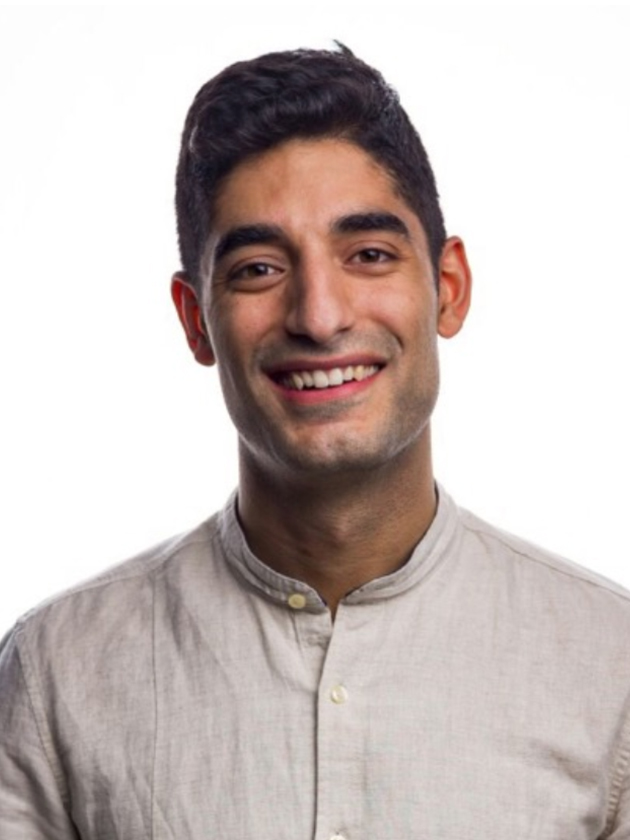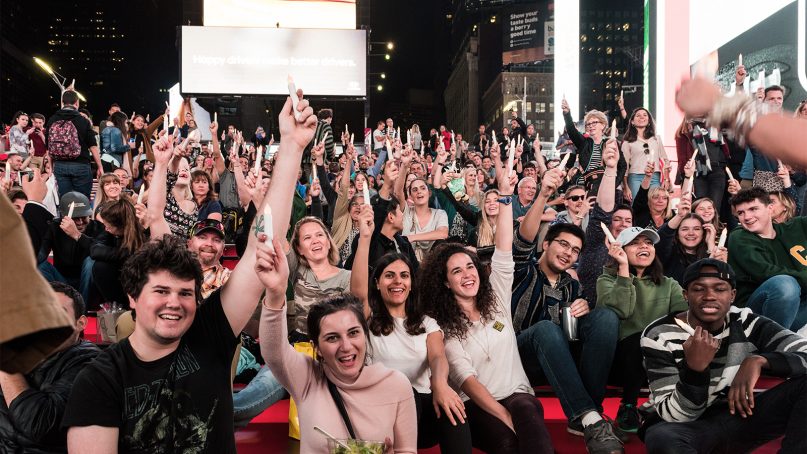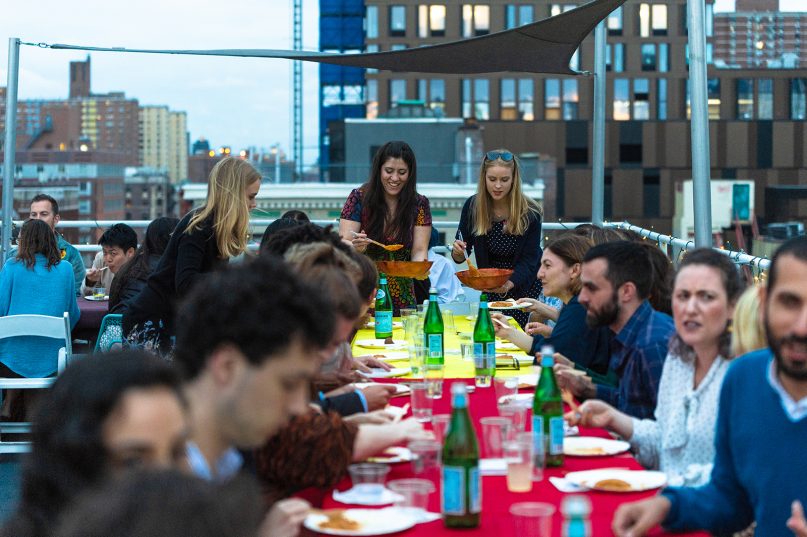NEW YORK (RNS) — After the latest wave of attacks at places of worship, from Poway, to Sri Lanka, to New Zealand and Pittsburgh, Mohammad Modarres felt an added sense of urgency in his latest business venture, Abe’s Eats.
Modarres, an Iranian-American entrepreneur, seeks to unite the Muslim and Jewish communities by producing meats that satisfy both faiths’ most stringent dietary laws. It is Modarres’ hope that his company will make the point that the Muslim and Jewish communities, often thought to be opposed, can find strength in combating rising bigotry and hate crimes.
To ensure the meat reaches what is considered the gold standard of kashrut (Glatt kosher) and halal (Zabihah), the butchering process for Abe’s Eats is overseen by a Shokhet, or kosher slaughterer, alongside a Muslim equivalent who gives a prayer at the moment of sacrifice.

Mohammad Modarres. Courtesy photo
Before Abe’s Eats, Modarres, a Muslim, founded Interfaith Ventures, a nonprofit that hosts Friday night interfaith dinners, known as Shabbat Salaam, nationwide for the past few years.
The synagogue and mosque attacks are part of a sharp rise in anti-Semitic and Islamophobic hate crimes. A 2017 FBI report showed that in the United States hate crimes had increased for the third consecutive year, with an almost 23-percent spike in religion-based hate crimes and a 37-percent rise in anti-Semitic hate crimes alone.
“When a more established immigrant community helps another one be better embraced in the larger American narrative, it means we all become stronger,” Modarres said at the close of a TED talk he gave last June about Abe’s Eats that was titled “How to build a more inclusive dinner table.”
Modarres was quick to note that Abe’s Eats is not just a meat company. “We are using something as tangible as food to normalize our religious diversity and alleviate Jews and Muslims of hate crimes. Meat happens to be one of the more complex foods to produce under both Kosher and Halal dietary laws; so I started there.”
“In these tumultuous times, if you can bridge gaps, rather than divide them, then that’s really important,” said James Chambers, executive director of Halal Food Standards Alliance of America, who added that he was intrigued by the concept of Abe’s Eats. But he stressed that production of halal and kosher meats are intricate processes and expressed concern that Abe’s Eats will not make interfaith understanding a priority over proper butchering.
Over the past few years, Modarres has worked with mashgiachs (kosher supervisors), halal experts, imams, rabbis and sustainable farmers to create a product that he believes will promote inclusivity and bridge religious divides through the medium of food.
“The idea stemmed from when I invited my Muslim and Jewish friends to Shabbat Salaam dinners in California two years ago in order to discuss how we were going to tackle the latest wave of religious bigotry,” said Modarres.
“What I found fascinating was that even though we were coming together at these events to celebrate our commonalities, we still separated over our dietary habits.”
In late 2017, Modarres organized an outdoor interfaith food gathering in Times Square, drawing 600 people who lit Shabbat candles and celebrated religious diversity. Its success inspired Modarres to produce high-quality religious foods that are not restricted to a single religious community.

Hundreds gathered at Times Square for an interfaith Shabbat lighting ceremony in late 2017 to celebrate religious diversity. Photo courtesy of Abe’s Eats
Abe’s Eats has a sound business model, too. With the kosher and halal food industry in the United States alone worth an estimated $38 billion, the two-in-one meat venture will be able to serve “multiple faith communities while allowing (strictly observant) Jews and Muslims to eat from the same plate,” according to Modarres.
Since 85 percent of kosher and halal foods are bought by Americans with no affiliation to Judaism or Islam, he said, the consumer-base potential is enormous for meat that is produced to high standards.
“Demand is growing for sustainably sourced foods not found in factory farming,” said Modarres, which is why his venture promises 100 percent grass-fed, organic meat raised by American ranchers for environmentally conscious consumers.
But Modarres is taking no chances and will launch a Kickstarter campaign this summer to help finance a marketing campaign and defray other expenses, using the hashtag ‘#UnityInDiversity,’ which Modarres says is designed to “show the world that behind the color of our skin and the stereotypes of our religious or cultural beliefs, there are dreams and passions that can resonate with everyone on a human level.”
Modarres believes that support from Kickstarter will also go to prove that identifying with Islamic and Jewish communities can withstand the uptick in attacks on religious communities.





